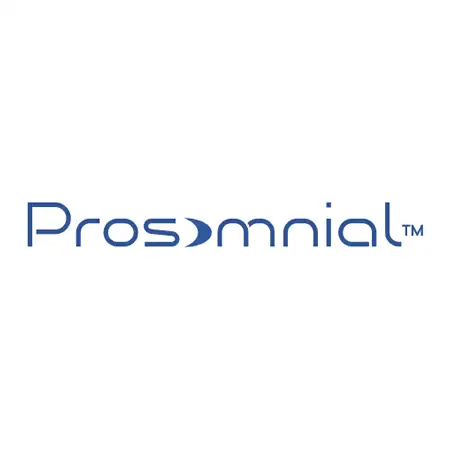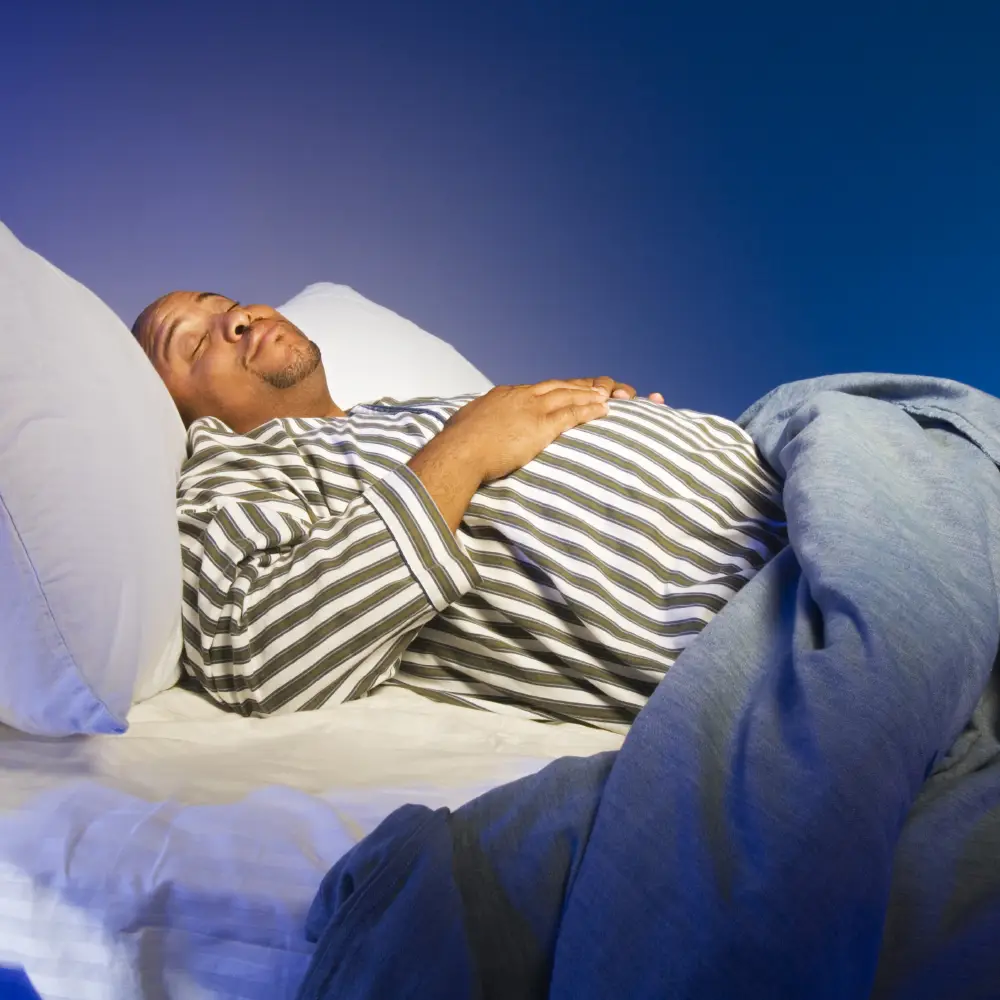The science on melatonin
Melatonin is a natural hormone produced by the brain to help regulate our circadian rhythm – the internal clock that controls our sleep-wake cycle. Melatonin appears to be particularly useful in sleep disorders related to jet lag, shift workers, children, and excessive screen time before bed. It can also reduce the time it takes to fall asleep in people with insomnia.2,6,7,8 Authors of a Cochrane Review concluded that “melatonin is remarkably effective in preventing or reducing jet lag”.6 A 2018 systematic review and meta-analysis which pooled data from 7 double-blind RCTs clearly supported the use of melatonin in the management of secondary sleep disorders in adults. Supplemental melatonin was found to lower sleep onset latency (P=0.02 vs placebo) and increase total sleep time (P=0.01 vs placebo).2 Similar results have been reported in children where melatonin appeared safe and effective in improving sleep in children with neurodevelopment disorders.9
Pistachio as an innovative natural food source of melatonin
Melatonin was first identified in plants in 1994 and is ubiquitously synthesised in plant organs where it functions to enhance growth and preserve integrity under stressful conditions.10,11 An increasing number of studies have quantified the content of melatonin within various plant parts. Exceptionally high concentrations (227, 000 – 233, 000 ng/g) have been found in Pistachio nut (Pistacia vera L.) – the highest values reported for any plant material to date.10,12,13,14 Consumption of melatonin-rich foods has been shown to significantly increase serum melatonin concentrations in humans and animals, indicating food-derived melatonin is bioavailable and could provide beneficial effects on human health.12 Pistachio nuts enjoy immense popularity around the world – they are the third most commonly traded tree nut and are widely consumed for their nutritional benefits and pleasant flavour.15,16
Sleep Statistics
- Worldwide, lack of sleep has a prevalence rate between 20% and 41.7%.3
- Almost one third of people globally complain of insomnia.3
- 69.5 billion USD was spent on sleep aids globally in 2017 and this is expected to increase at a CAGR of 6.5% between 2018-2023.1
- Melatonin is the fourth most popular natural product taken by United States adults.4
- The global melatonin supplement market was valued at 851 million USD in 2016 and is projected to grow to over 1.5 billion USD in 2021.5
Derived from pistachio – natures richest plant source of melatonin, Prosomnial™ is a natural sleep aid standardised to 1% melatonin. This industry-first ingredient has been developed to address a major and growing health concern by providing a therapeutic dose of melatonin which meets consumer desire for a plant-based ingredient to promote sleep. Most people have the occasional sleepless night, and some are affected by chronic sleep disturbances including insomnia. More consumers are seeking herbal sleep aids,1potentially due to the ‘hangover effect’ and short half-life of drugs in this category.2
Human Clinical Study
- Conducted in Australia over 2024/25
- Randomised, double-blind, active-controlled crossover study
- 26 participants (male & female)
- 100mg Prosomnial providing 1mg of natural melatonin
- Synthetic melatonin used as active control
- Participants completed a clinically validated sleep diary
- Prosomnial demonstrated statistically significant improvements in sleep latency (time taken to fall asleep), total sleep time, sleep quality, and of feeling rested and refreshed.
Regulatory status of Pistachio and melatonin in Europe
In Europe, pistachio is suitable for use in foods and has been declared a permitted, non-novel food. Italy’s Ministry of Health – The Ministero della Salute – lists Pistacia vera fructus as an allowed herbal preparation. Likewise, the Belgian Royal Decree lists the fruit of Pistacia vera as an authorised plant part. Whilst melatonin is authorised for use in food supplements in many European countries, the permitted dose is disparate.17
- Up to 2mg melatonin per dose and per day is authorised in food supplements in France and Latvia.
- Up to 1mg melatonin per dose and per day is authorised in food supplements in Italy, Spain, Greece, Poland, Croatia and Cyprus.
- Less than 0.3mg melatonin per dose and per day is authorised in food supplements in Belgium.
- Less than 0.28mg melatonin per dose and per day is authorised in food supplements in Germany.
- Melatonin is not permitted in food supplements in Denmark, the Czech Republic, the United Kingdom, Slovenia or Switzerland.
The European Food Safety Authority (EFSA) has issued a favourable opinion for two sleep-related claims linked to food supplements containing melatonin (Commission Regulation (EU) No 432/2012):17,18
“Melatonin contributes to the alleviation of subjective feelings of jet lag” is permitted with a minimum intake of 0.5mg melatonin taken close to bedtime on the first day of travel and on the following few days after arrival at the destination.
“Melatonin contributes to the reduction of time taken to fall asleep” is permitted with a minimum intake of 1mg melatonin consumed close to bedtime.
Formulation
Dosage: Adults, take one mini tablet daily before bed
Market |
Each Dose Contains |
mg |
|---|---|---|
|
France, Latvia |
Prosomnial™ Pistachio (Pistacia vera L.) seed |
200 2 |
|
Italy, Spain, Greece, Poland, |
Prosomnial™ Pistachio (Pistacia vera L.) seed |
100 |
|
Belgium |
Prosomnial™ Pistachio (Pistacia vera L.) seed |
29 |
|
Germany |
Prosomnial™ Pistachio (Pistacia vera L.) seed |
27 |
For a sample demonstration and more information, please contact your local IMCD representative.
References
1 Prescient & Strategic Intelligence Private Limited. (2018). Sleeping Aids Market 2013-2023. Accessed from:
https://www.psmarketresearch.com/market-analysis/sleeping-aids-market
2 Li, T., Jiang, S., Han, M., Yang, Z., Lv, J., et al. (2018). Exogenous melatonin as a treatment for secondary sleep disorders: A systematic review and meta-analysis. Frontiers in Neuroendocrinology.
doi:10.1016/j.yfrne.2018.06.004.
3 Ohayon, MM. (2011). Epidemiological Overview of Sleep Disorders in the General Population.
Sleep Med Res 2011;2:1-9.
4 Grigg-Damberger, M., Ianakieva, D. (2017). Poor Quality Control of Over-the-Counter Melatonin: What They Say
Is Often Not What You Get. J Clin Sleep Med. 2017 Feb 15; 13(2): 163–165. doi: 10.5664/jcsm.6434.
5 Statistica Statistics Portal. (2019). Total global melatonin supplements market in 2016 and a forecast for 2021.
Accessed from: https://www.statista.com/statistics/967361/total-melatonin-supplements-market-size-globally/
6 Herxheimer, A., & Petrie, K. J. (2002). Melatonin for the prevention and treatment of jet lag.
Cochrane Database of Systematic Reviews. doi:10.1002/14651858.cd001520.
7 Mayo Foundation for Medical Education and Research (MFMER). (2018).
Prescription sleeping pills: What’s right for you?.
Accessed from: https://www.mayoclinic.org/diseases-conditions/insomnia/in-depth/sleeping-pills/art-20043959
8 The National Institutes of Health (NIH) – National Centre for Complementary and Integrative Health. (2018). Melatonin: In Depth. Accessed from: https://nccih.nih.gov/health/melatonin
9 Abdelgadir, I. S., Gordon, M. A., & Akobeng, A. K. (2018). Melatonin for the management of sleep problems in children with neurodevelopmental disorders: a systematic review and meta-analysis. Archives of Disease in Childhood. 314181. doi:10.1136/archdischild-2017-314181.
10 Nawaz MA, Huang Y, Bie Z, Ahmed W, Reiter RJ, Niu M and Hameed S. (2016) Melatonin: Current Status and Future Perspectives in Plant Science. Front. Plant Sci. 6:1230. doi: 10.3389/fpls.2015.01230.
11 Arnao, MB. (2014). Review Article – Phytomelatonin: Discovery, Content, and Role in Plants. Advances in Botany.
Article ID 815769; 1-11. doi: 10.1155/2014/815769.
12 Meng, X., Li, Y., Li, S., Zhou, Y., Gan, RY., et al. (2017). Dietary Sources and Bioactivities of Melatonin. Nutrients. Apr; 9(4): 367. doi: 10.3390/nu9040367.
13 Koca, U., Aka, C., Bor, M. Melatonin in Edible and Non-Edible Plants. Turk J Pharm Sci 2017;14(1):75-83. doi: 10.4274/tjps.33043.
14 Oladi E., Mohamadi M., Shamspur T., Mostafavi A. (2014). Spectrofluorimetric determination of melatonin in kernels of four different pistacia varieties after ultrasound-assisted solid–liquid extraction. Spectrochim. Acta Part A 132, 326–329.
15 Costa, J., Silva, I., Vicente, A. A., Oliveira, M. B. P. P., & Mafra, I. (2017). Pistachio nut allergy: An updated overview. Critical Reviews in Food Science and Nutrition, 1–17. doi:10.1080/10408398.2017.1379947.
16 Gentile, C., Tesoriere, L., Butera, D., Fazzari, M., Monastero, M., et al. (2007). Antioxidant Activity of Sicilian Pistachio (Pistacia vera L. Var. Bronte) Nut Extract and Its Bioactive Components. J. Agric.
Food Chem; 55 (3): pp 643–648. doi: 10.1021/jf062533i.
17 French Agency for Food, Environmental and Occupational Health & Safety. (2018). OPINION of the French Agency for Food, Environmental and Occupational Health & Safety on the risks associated with the consumption of food supplements containing melatonin. Accessed from: https://www.anses.fr/fr/system/files/NUT2016SA0209EN.pdf
18 EFSA Panel on Dietetic Products, Nutrition and Allergies (NDA); Scientific Opinion on the substantiation of health claims related to melatonin and alleviation of subjective feelings of jet lag (ID 1953), and reduction of sleep onset latency, and improvement of sleep quality (ID 1953) pursuant to Article 13(1) of Regulation (EC) No 1924/2006. EFSA Journal 2010; 8(2):1467. [14 pp.]. doi:10.2903/j.efsa.2010.1467. Accessed from: www.efsa.europa.eu
CONTACT US
Contact your local IMCD – Network Nutrition Team Member for more information and pricing on our wide range of herbal extract products.








